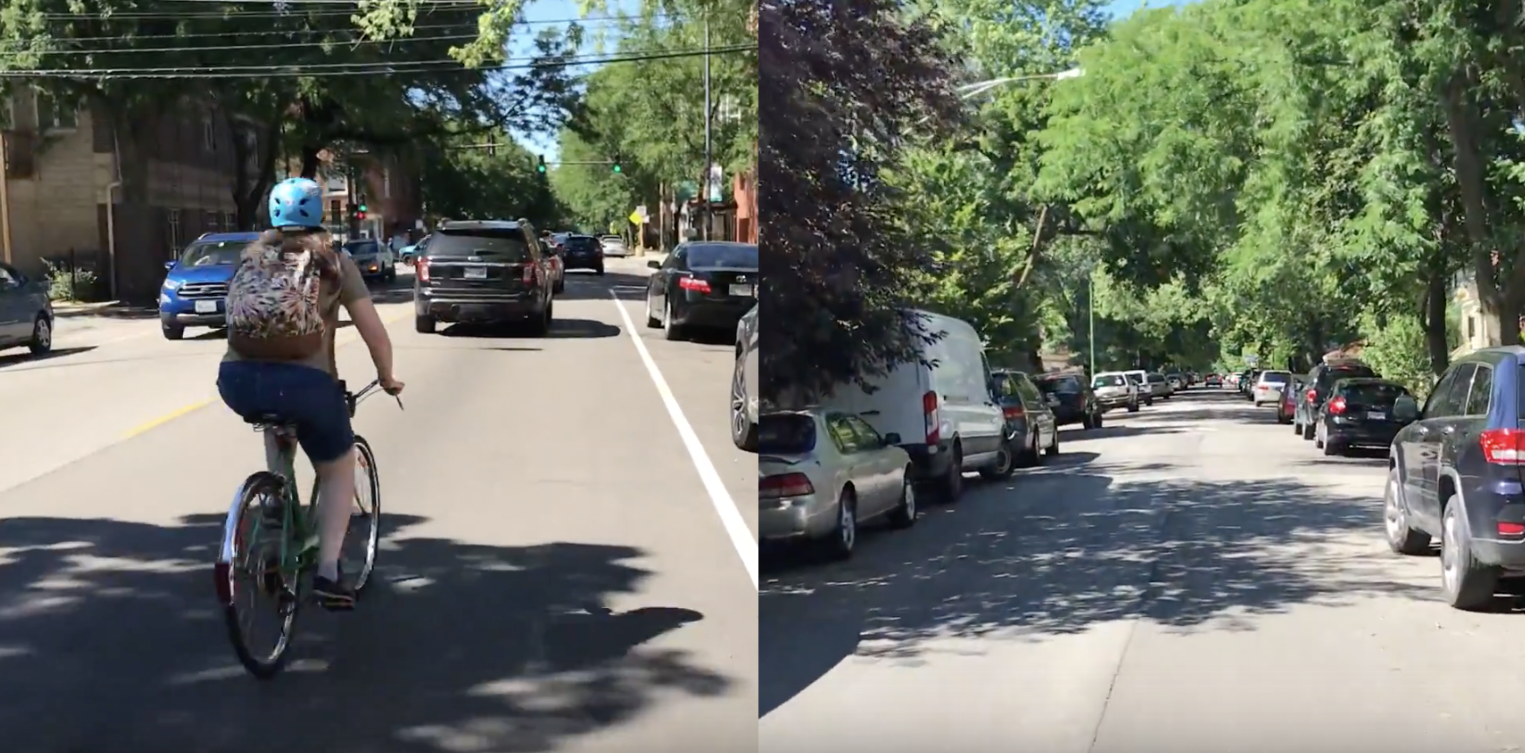Thanks to Streetsblog's Steven Vance for providing a heads-up on this project.
Register for this Monday's Leavitt Greenway Virtual Community Meeting here.
All of Damen Avenue (2000 W.) between Diversey Parkway (2800 N.) and Bryn Mawr Avenue (5600 N., next to Rosehill Cemetery), is currently a marked bikeway, and it's a common cycling route. But tragically bicycle fatalities on this stretch of Damen, which also carries heavy motor vehicle traffic, suggest it is not a particularly safe street for people on bikes.
In October 2009, Loyola University student and barista Liza Whitacre, 20, was cycling on Damen at Wellington Avenue (3000 N.), next to Hamlin Park, when she was run over and killed by a truck driver.
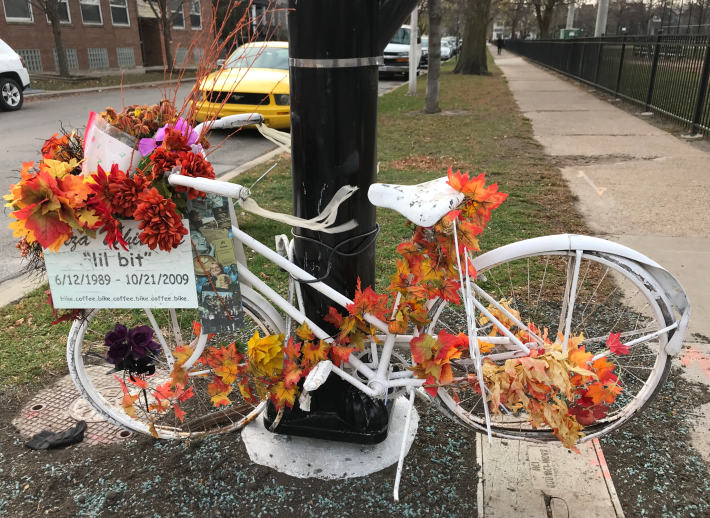
And in September 2016, 23-year-old health coach Anastasia Kondrasheva was biking to work on Damen when a flatbed truck driver failed to yield while making a right turn onto Addison Street (3600 N.) and fatally struck her.
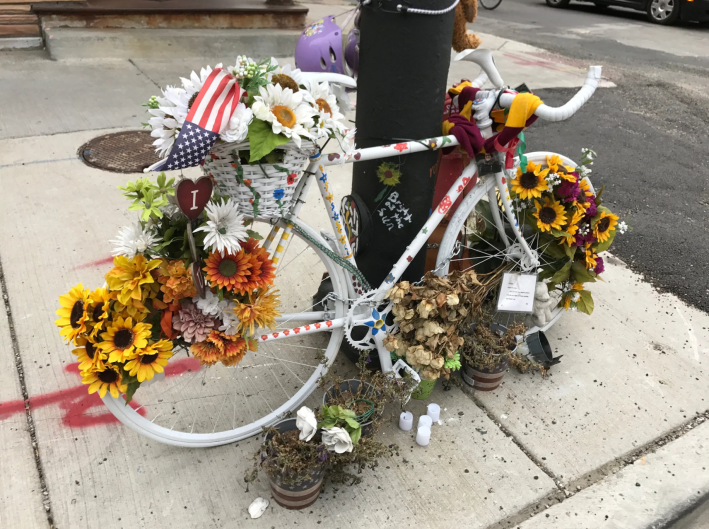
If you're biking north in that part of town between Diversey and the cemetery, Leavitt Street (2200 W.), a residential street two blocks west of Damen, is an excellent alternative to Damen. While motor vehicle traffic on Leavitt is relatively light, the road has stoplights at every major street crossing, making it much easier to cross arterials without having to worry about dodging cross traffic.
But that roughly three mile stretch of Leavitt between Diversey and Bowmanville Avenue (5400 N., the diagonal street just south of Rosehill), currently doesn't work well for southbound cycling, since it's mostly northbound-only. But that's about to change.
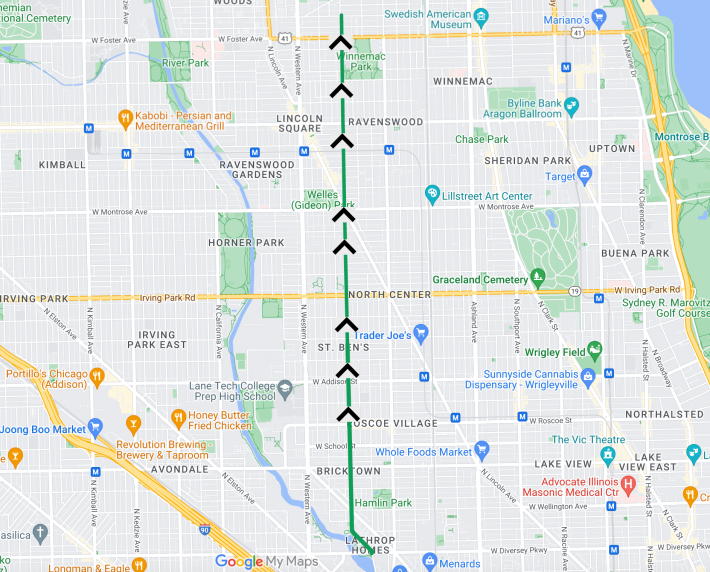
Recently Ald. Matt Martin (47th) announced that he is joining forces with colleagues Ald. Scott Waguespack (32nd) and Andre Vasquez (40th), and the Chicago Department of Transportation, to convert this segment of Leavitt into a Neighborhood Greenway. That's a bicycle-friendly side street with traffic calming and contraflow bike lanes to make "wrong-way" cycling legal and safer on one-way road segments. There will be an online-only community meeting on the plan this Monday, July 10 at 6 p.m.
Martin's chief of staff Joshua Mark told Streetsblog that the meeting is strictly an information session for residents because the Leavitt Greenway is a done deal, and construction of the project is starting in the next few weeks. It will involve adding street markings, including the contraflow lanes, and speed humps, but won't eliminate any car-parking spots. There will be a total cost of about $428,000.
But wait a minute. CDOT studies have found that Neighborhood Greenways on streets like Berteau Avenue (4200 N.) and Wood Street (1800 W.) have simultaneously increased cycling but decreased bike crashes by better organizing bicycle flow and calming car traffic.
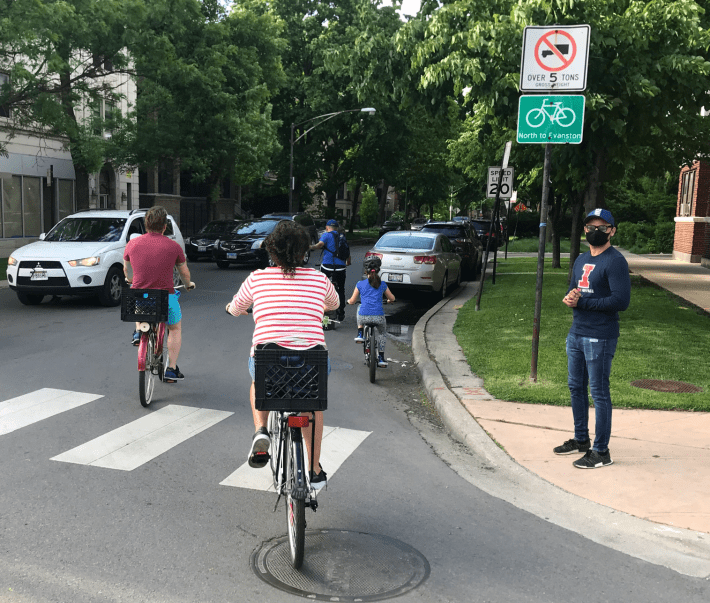
And yet there's been major pushback from neighbors to some of these projects that have slowed down construction. Most absurdly, the planning process for a greenway on Dickens Avenue (2100 N.) in Lincoln Park has dragged on for more than four years. That's largely because lawyer Edward C. Fitzpatrick has covertly organized extensive "Not In My Back Yard"-style opposition. (New local alderperson Timmy Knudsen (43rd) indicated last spring that he plans to move forward with the greenway.)
But Mark said it's unlikely we're going to see much opposition to the Leavitt Greenway. Unlike more complicated greenways, it doesn't involve federal funding or building relatively complex safety infrastructure like sidewalk bump-outs or raised crosswalks. "Mostly this is just paint."
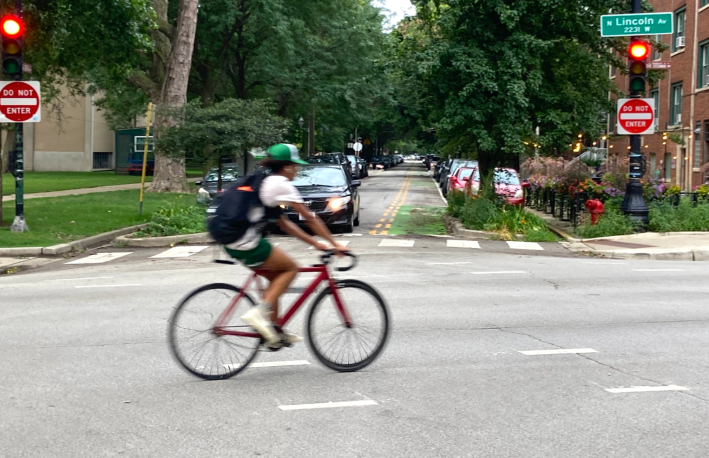
Moreover, Mark argued, there are obvious reasons a safe two-way bike route is needed on Leavitt, and strong local support for one. "In the 47th Ward Leavitt passes by at least three primary schools and two parks." He noted that some of the landmarks that the entire Leavitt Greenway will directly serve include (north to south) Amundsen High School, Winnemac Park, Welles Park, the Sulzer Library, Coonley Elementary School, and St. Benedict Preparatory School, and the greenway will be a block from Audubon Elementary School.
Mark said he recently heard from a constituent whose kid efficiently bikes north on Leavitt to school. But the student currently has no way to get home that's both safe and direct.
"The point of the Leavitt Greenway meeting is for residents to find out what's going on and why," Mark said. "We know from experience that people don't like to wake up and be surprised by what's happening on their street."
On the other hand, Mark noted that Neighborhood Greenway projects "wouldn't be delayed if they were projects for cars" like the $800 million Jayne Byrne Interchange.
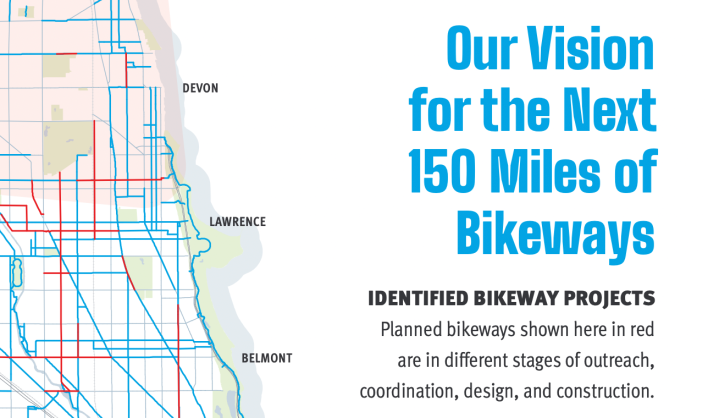
"People deserve to know what's happening on their streets, but the Leavitt Greenway is part of the citywide plan to improve bike mobility," Mark concluded. "It's important for residents to have an influence on a project when there's potential for it to have negative consequences. But there is no negative impact here, so this just needs to happen."
Register for this Monday's Leavitt Greenway Virtual Community Meeting here.
